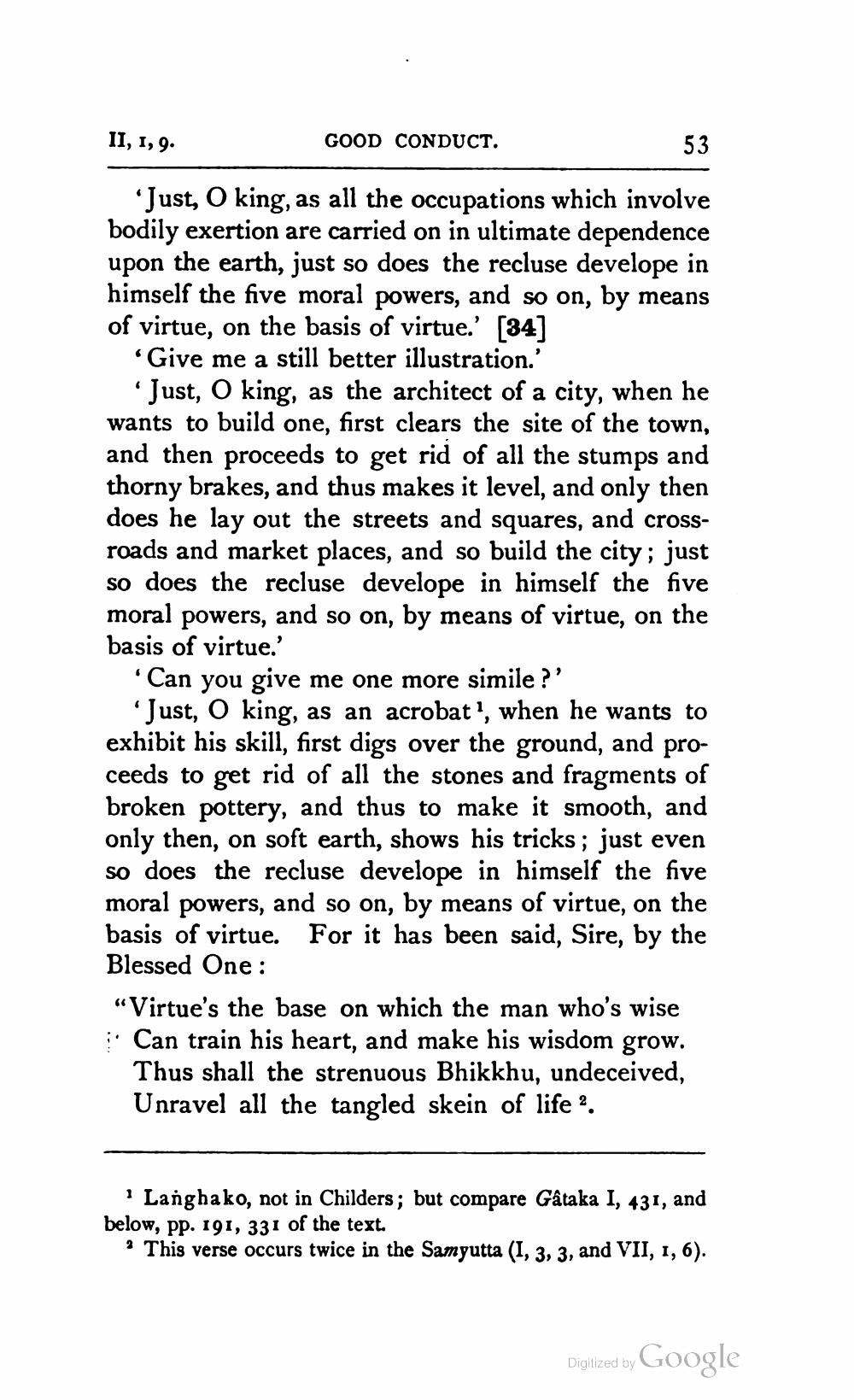________________
II, 1, 9.
GOOD CONDUCT.
53
Just, О king, as all the occupations which involve bodily exertion are carried on in ultimate dependence upon the earth, just so does the recluse develope in himself the five moral powers, and so on, by means of virtue, on the basis of virtue. [34]
Give me a still better illustration.'
Just, О king, as the architect of a city, when he wants to build one, first clears the site of the town, and then proceeds to get rid of all the stumps and thorny brakes, and thus makes it level, and only then does he lay out the streets and squares, and crossroads and market places, and so build the city; just so does the recluse develope in himself the five moral powers, and so on, by means of virtue, on the basis of virtue.' "Can you give me one more simile?'
Just, О king, as an acrobat", when he wants to exhibit his skill, first digs over the ground, and proceeds to get rid of all the stones and fragments of broken pottery, and thus to make it smooth, and only then, on soft earth, shows his tricks; just even so does the recluse develope in himself the five moral powers, and so on, by means of virtue, on the basis of virtue. For it has been said, Sire, by the Blessed One: “Virtue's the base on which the man who's wise
Can train his heart, and make his wisdom grow. Thus shall the strenuous Bhikkhu, undeceived, Unravel all the tangled skein of life 2.
* Langhako, not in Childers; but compare Gâtaka I, 431, and below, pp. 191, 331 of the text.
* This verse occurs twice in the Samyutta (I, 3, 3, and VII, 1, 6).
Diglized by Google




